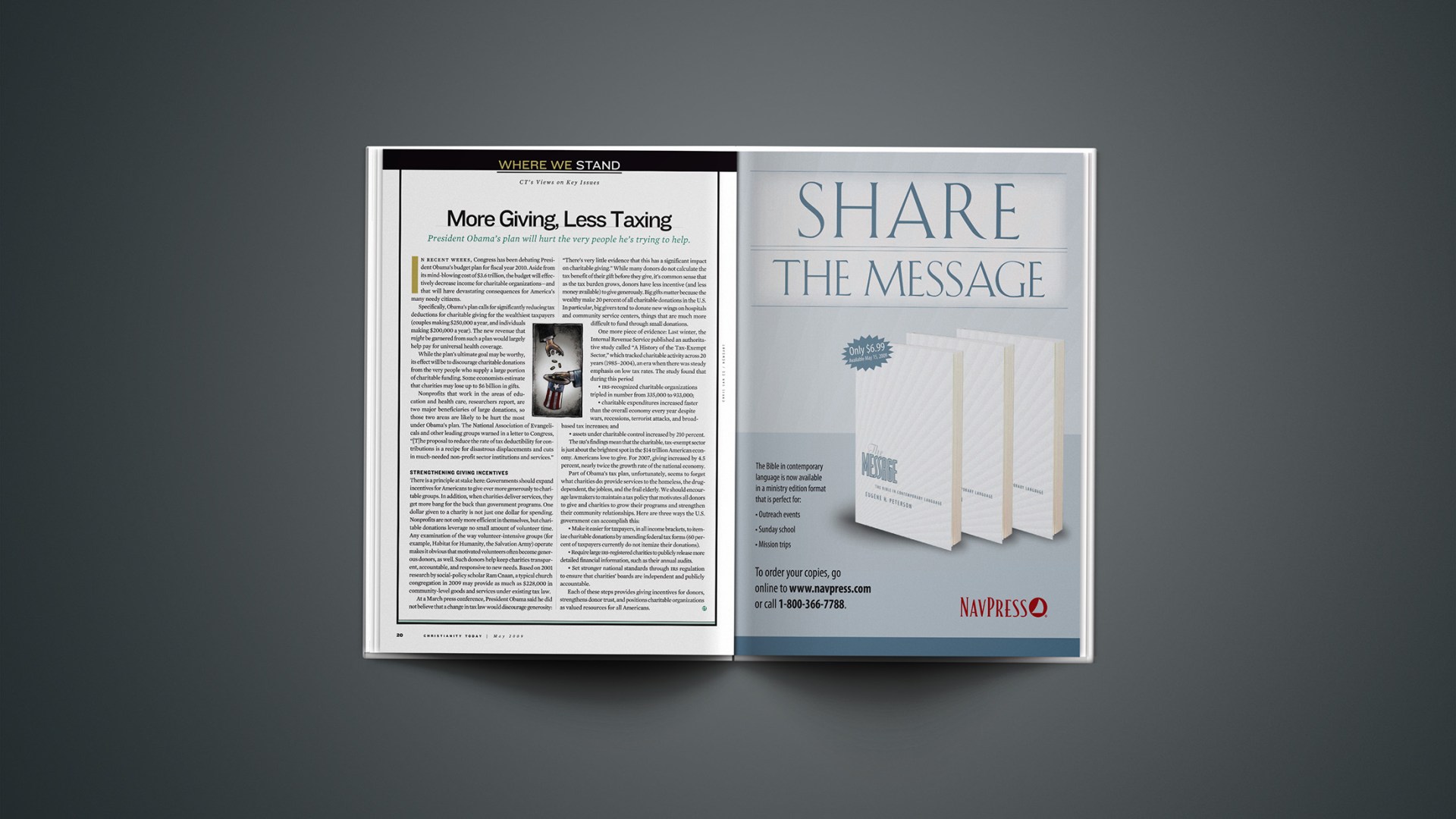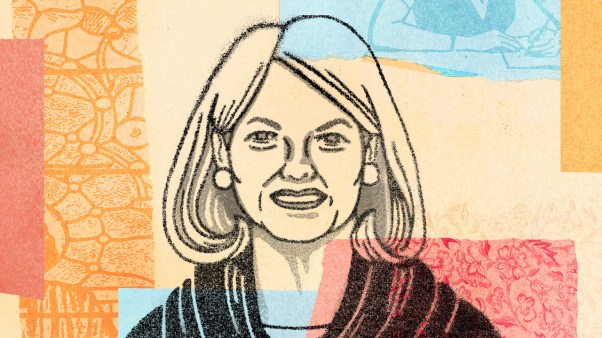In recent weeks, Congress has been putting the brakes on President Obama’s plan to raise an additional $318 billion in taxes to pay for the 2010 federal budget. Aside from the federal budget’s mind-blowing cost of $3.6 trillion, his proposed tax increases would effectively decrease income for charitable organizations — and that would have devastating consequences for America’s many needy citizens.
Specifically, Obama’s plan calls for significantly reducing tax deductions for charitable giving for the wealthiest taxpayers (couples making $250,000 a year, and individuals making $200,000 a year). The new revenue that might be garnered from such a plan would largely help pay for health insurance coverage. While the plan’s ultimate goal may be worthy, its effect will be to discourage charitable donations from the very people who supply a large portion of charitable funding. Some economists estimate that charities may lose up to $6 billion in gifts.
Nonprofits that work in the areas of education and health care, researchers report, are two major beneficiaries of large donations, so those two areas are likely to be hurt the most under Obama’s plan. The National Association of Evangelicals and other leading groups warned in a letter to Congress, “[T]he proposal to reduce the rate of tax deductibility for contributions is a recipe for disastrous displacements and cuts in much-needed non-profit sector institutions and services.”
Strengthening Giving Incentives
There is a principle at stake here: Governments should expand incentives for Americans to give ever more generously to charitable groups. In addition, when charities deliver services, they get more bang for the buck than government programs. One dollar given to a charity is not just one dollar for spending. Nonprofits are not only more efficient in themselves, but charitable donations leverage no small amount of volunteer time. Any examination of the way volunteer-intensive groups (for example, Habitat for Humanity, the Salvation Army) operate makes it obvious that motivated volunteers often become generous donors, as well. Such donors help keep charities transparent, accountable, and responsive to new needs. Based on 2001 research by social-policy scholar Ram Cnaan, a typical church congregation in 2009 may provide as much as $228,000 in community-level goods and services under existing tax law.
At a March press conference, President Obama said he did not believe that a change in tax law would discourage generosity: “There’s very little evidence that this has a significant impact on charitable giving.” While many donors do not calculate the tax benefit of their gift before they give, it’s common sense that as the tax burden grows, donors have less incentive (and less money available) to give generously. Big gifts matter because the wealthy make 20 percent of all charitable donations in the U.S. In particular, big givers tend to donate new wings on hospitals and community service centers, things that are much more difficult to fund through small donations.
One more piece of evidence: Last winter, the Internal Revenue Service published an authoritative study called “A History of the Tax-Exempt Sector,” which tracked charitable activity across 20 years (1985-2004), an era when there was steady emphasis on low tax rates. The study found that during this period
- IRS-recognized charitable organizations tripled in number from 335,000 to 933,000;
- charitable expenditures increased faster than the overall economy every year despite wars, recessions, terrorist attacks, and broad-based tax increases; and
- assets under charitable control increased by 210 percent.
The IRS’s findings mean that the charitable, tax-exempt sector is just about the brightest spot in the $14 trillion American economy. Americans love to give. In 2007, giving increased by 4.5 percent, nearly twice the growth rate of the national economy.
Part of Obama’s tax plan, unfortunately, seems to forget what charities do: provide services to the homeless, the drug-dependent, the jobless, and the frail elderly. We should encourage lawmakers to maintain a tax policy that motivates all donors to give and charities to grow their programs and strengthen their community relationships. Here are three ways the U.S. government can accomplish this:
- Make it easier for taxpayers, in all income brackets, to itemize charitable donations by amending federal tax forms (60 percent of taxpayers currently do not itemize their donations).
- Require large IRS-registered charities to publicly release more detailed financial information, such as their annual audits.
- Set stronger national standards through IRS regulation to ensure that charities’ boards are independent and publicly accountable.
Each of these steps provides giving incentives for donors, strengthens donor trust, and positions charitable organizations as valued resources for all Americans.
Copyright © 2009 Christianity Today. Click for reprint information.
Related Elsewhere:
Christianity Today has more editorials on our site.
More articles on giving include:
Church Giving Outlook: You’ve Got Some Time | Research shows that members’ contributions stay steady through first years of recession. (October 16, 2008)
The Not-for-Profit Surge | Even in tough times, your favorite charities are doing better than anyone expected. (May 1, 2009)
Scrooge Lives! | Why we’re not putting more in the offering plate. And what we can do about it. (December 5, 2008)
CT has a special section on Barack Obama and follows political developments on the politics blog.










